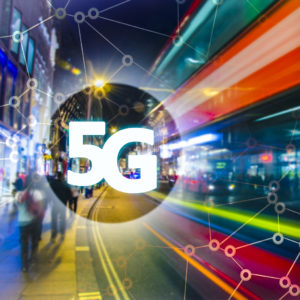Most Americans associate 5G technology with self-driving cars, virtual reality headsets, or super-fast internet. While all of these applications are exciting, they aren’t as critical to America as the national security implications of 5G. Winning the race to 5G will help ensure that our military communications are secure and that bad actors can’t hack or manipulate these communications.
The Chinese Communist Party understands very well the importance of 5G and is working hard to develop 5G technology before us to gain control of the market. A recent report by the White House Office of Trade and Manufacturing Policy bluntly summarizes the threat the CCP poses.
“Given the size of China’s economy, the demonstrable extent of its market-distorting policies, and China’s stated intent to dominate the industries of the future, China’s acts, policies, and practices of economic aggression now targeting the technologies and IP of the world threaten not only the U.S. economy but also the global innovation system as a whole.”
America must swiftly act to ensure we win the race to 5G. One of the biggest barriers to American development of 5G is antitrust law and enforcement, both domestically and internationally. A combination of domestic rulings and efforts by foreign governments have left many of our most innovative companies dangerously exposed. We need to respond to these anti-competitive measures to ensure American companies are competing on a level playing field.
Aggressive antitrust enforcement by both foreign and domestic forces threatens innovation by forcing American companies to engage in expensive litigation. The lawsuits often result in these companies being unable to exercise their legally granted intellectual property rights. Qualcomm – one of the most active companies in the 5G space – is embroiled in a years-long legal battle that jeopardizes its business model and could force it to sell its groundbreaking wireless chips at a steep discount. The problems American technology companies face overseas are even more extensive, as foreign governments like China prioritize technological supremacy over the rule of law.
China’s government and courts regularly disregard due process guidelines. American companies often face pressure to settle out of court because they know the process is rigged. In some instances, American companies weren’t allowed to view all the evidence against them or retain appropriate legal counsel. Without legal baselines, American companies are powerless to resist theft and wrongdoing by the CCP.
Another example of these manipulative legal maneuvers against U.S. companies by China occurred when the American company InterDigitial filed a suit in India alleging that Xiaomi, a Chinese tech giant, was infringing its patents. The Chinese Wuhan Intermediate Court stepped in and demanded InterDigital drop its case and not sue Xiaomi in any jurisdiction or face a hefty fine. Clearly, the CCP was putting its hand on the scales of justice to protect a domestic company.
Research by the Office of the United States Representative has found the laws that China chooses to enforce are often overly broad and essentially allow Chinese companies to seize intellectual property if American companies won’t hand it over at a steep discount.
These actions, in the U.S. and especially in China, can have devastating impacts on America’s role in 5G development. Historically, Ame
The American government must utilize existing mechanisms and diplomatic solutions to thwart rogue actors, including China and nations like South Korea, who abuse antitrust laws. The CCP and other countries are taking advantage of America’s support of free trade and innovation to steal our technology.
One promising model is the proposed legislation, The Protecting American Innovation, and Development Act of 2020 (PAID). PAID authorizes the Secretary of Commerce to create and curate a list of foreign “bad actors” who are engaging in patent infringement of a standard-essential patent in wireless communication technologies like 5G. If an American company can show a foreign company is illegally using its patent, that foreign company will be moved to the list for one year and will have to negotiate with the U.S. patent owner.
The race to 5G is too vital for America to be caught sleeping. We need to protect our domestic innovators from overseas antitrust harassment and ensure that innovation triumphs over theft and abusive legal practices.

